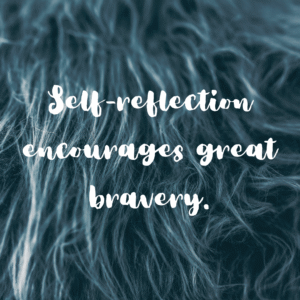We tend to need some kind of closure when there has been an end to a significant piece of our life. Whether is a relationship, death of a loved one or job change, the finality of it all can be overwhelming and painful. Afterall, whatever had been part of your live was real and meaningful.
Closure allows us to let go of what once was. It is acceptance of what has happened, honoring what was once there and integrating it into our lives. This integration allows us to move forward without self-imposed limitations and offers us opportunities in our lives that we might not see if we stayed stuck in the same place.
With relationships, it is completely human to want answers from someone if they ended the relationship abruptly. We go into puzzle-solving mode, trying to understand where things went bad and where the red flags were that the end was coming. We keep seeking information until we are satisfied. But the truth is, most of the time we will never get all the information we seek. Maybe the person who ended it has ghosted us and they aren’t going to tell us anything we want to know.
Here’s the thing about closure: Closure is an inner-self journey of healing. It only requires you and you have to find peace on your own. And not all situations are going to look the same. It isn’t a linear process – it can be pretty messy.
It’s also important to note that everyone is different when it comes to closure. We all have distinctive ways in how we heal. Some need closure and peace of mind more than others, and that’s totally okay.
Here are some ways you start to get closure for yourself and restore your peace of mind:
1.) Give yourself the freedom to feel all the emotions you have – without judging yourself.
Some find it helpful to journal their feelings and some prefer talking to a friend or therapist about how they are feeling. There is no right or wrong way to feel and you have every right to feel how you feel about it.
2.) Express your feelings in a way that promotes healing for you.
If you know that confronting the person involved will bring you peace of mind, see if they will speak to you about it. If they aren’t, respect their boundary and write a letter to them and don’t send it. If you are seeking closure from the loss of a loved one, I find that sometimes saying the things that you wish you had the chance to say to them in person through a letter helps, too.
3.) If you wronged someone, apologize.
If you did something or said something that was hurtful, acknowledge and own what you did to the person involved. Whether it’s in person, on the phone or through email, express it. If the person doesn’t want to talk to you, respect their boundary and write a letter of apology and save it for a later date or just discard it instead of sending it.
4.) Practice gratitude and focus on what you learned from the experience.
Say your ex ended your relationship out of the blue and you didn’t see it coming. Practicing gratitude and focusing on what you learned from the experience helps integrate what happened. Perhaps the relationship was an opportunity to learn more about what you like and don’t like in a partner. Maybe looking back you see some red flags that were there, and you can use that knowledge in future relationships. Relationships that end, while painful in the immediate, provide an amazing amount of opportunity for introspection and personal growth.
5.) Be patient with yourself.
Like I said earlier, creating closure for yourself isn’t a linear process. It takes time. Just keep putting one foot in front of the other and stay open to all possibilities that lay ahead.




